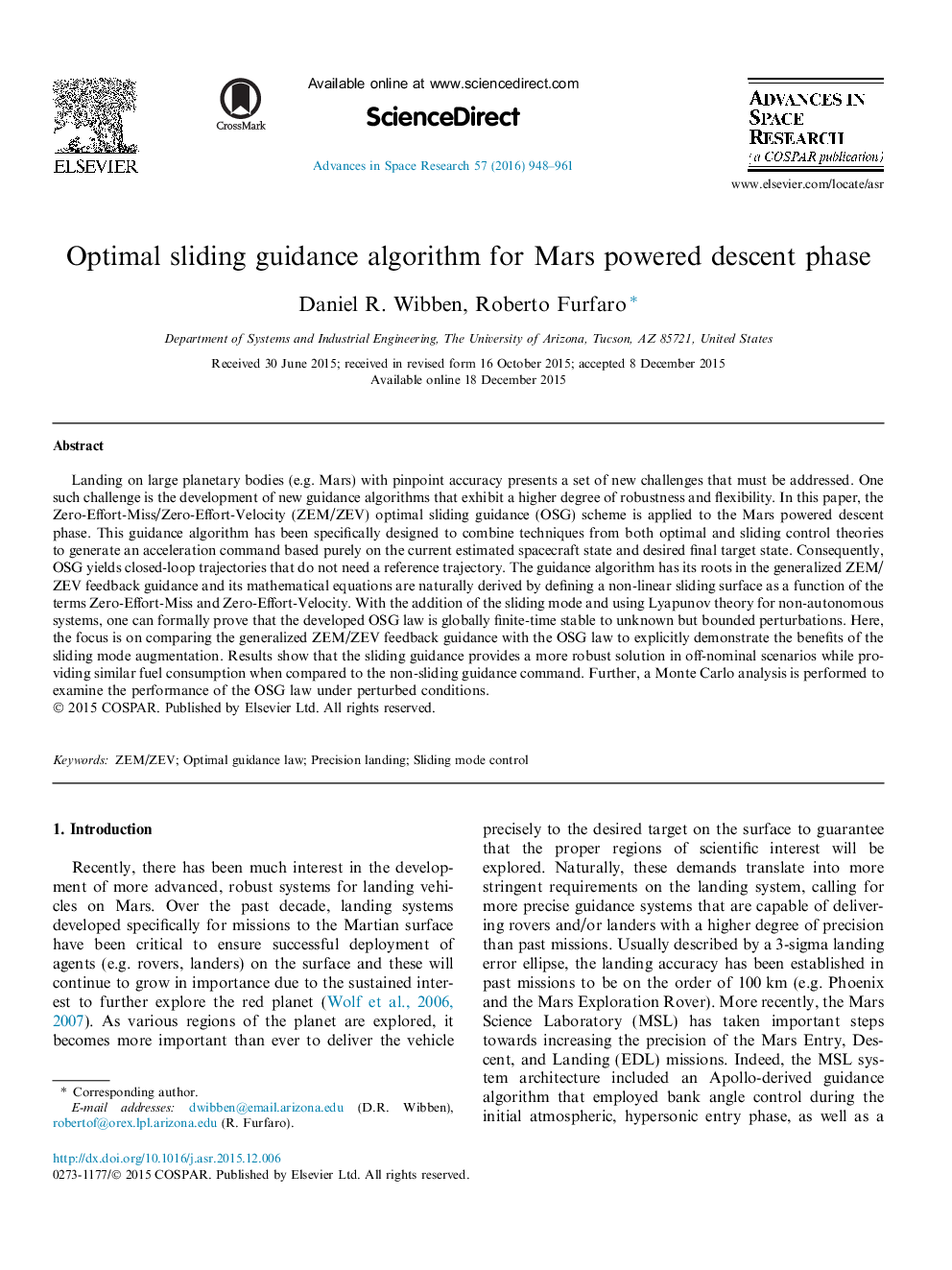| کد مقاله | کد نشریه | سال انتشار | مقاله انگلیسی | نسخه تمام متن |
|---|---|---|---|---|
| 1763355 | 1019999 | 2016 | 14 صفحه PDF | دانلود رایگان |
Landing on large planetary bodies (e.g. Mars) with pinpoint accuracy presents a set of new challenges that must be addressed. One such challenge is the development of new guidance algorithms that exhibit a higher degree of robustness and flexibility. In this paper, the Zero-Effort-Miss/Zero-Effort-Velocity (ZEM/ZEV) optimal sliding guidance (OSG) scheme is applied to the Mars powered descent phase. This guidance algorithm has been specifically designed to combine techniques from both optimal and sliding control theories to generate an acceleration command based purely on the current estimated spacecraft state and desired final target state. Consequently, OSG yields closed-loop trajectories that do not need a reference trajectory. The guidance algorithm has its roots in the generalized ZEM/ZEV feedback guidance and its mathematical equations are naturally derived by defining a non-linear sliding surface as a function of the terms Zero-Effort-Miss and Zero-Effort-Velocity. With the addition of the sliding mode and using Lyapunov theory for non-autonomous systems, one can formally prove that the developed OSG law is globally finite-time stable to unknown but bounded perturbations. Here, the focus is on comparing the generalized ZEM/ZEV feedback guidance with the OSG law to explicitly demonstrate the benefits of the sliding mode augmentation. Results show that the sliding guidance provides a more robust solution in off-nominal scenarios while providing similar fuel consumption when compared to the non-sliding guidance command. Further, a Monte Carlo analysis is performed to examine the performance of the OSG law under perturbed conditions.
Journal: Advances in Space Research - Volume 57, Issue 4, 15 February 2016, Pages 948–961
